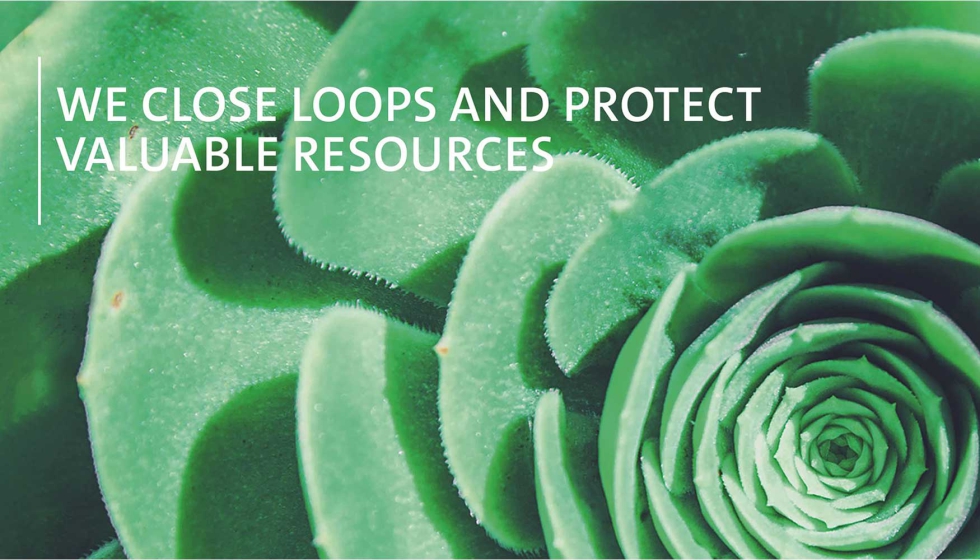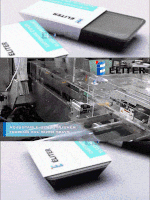The intelligent management of materials, a necessary way to achieve the Zero Waste goal
2022-12-27
At the Plastic Waste Free World conference and exhibition to be held in Cologne, the film manufacturer Südpack will present at stand 2012 business models that allow closing material circuits and keeping plastics in circulation at the end of their life cycle. The Südpack roadmap, ranked among the 50 most sustainable medium-sized companies in Germany by the economics magazine WirtschaftsWoche and nominated for the environment prize of the Land of Baden-Württemberg, focuses on sustainable films and, in particular, chemical and mechanical recycling initiatives that have aroused great interest. All this is aimed at achieving a fundamental goal called Zero Waste.
Sustainability has always been a concept firmly rooted in Südpack’s business philosophy. An essential component of the ambitious sustainability strategy is the development of efficient and recyclable material structures, since, in a myriad of applications, it will not even be possible in the future to completely replace plastic packaging with other alternatives. Consequently, this company has expanded its portfolio to include products that meet the aforementioned criteria. Perfect examples of this are the Pure-Line range, with its high-performance films based on polypropylene and polyethylene for the packaging of all types of food products, and the polypropylene film designed to manufacture pharmaceutical blisters.
In order to be able to calculate the environmental impacts of existing and newly created products, Südpack is developing a calculation tool that, within certain limits of the system, will make it possible to draw up comprehensive ecological balances taking into account different possible ends of the useful life. In this way, customers will have the possibility to compare different packaging solutions in terms of their sustainability.
Mechanical recycling: return of valuable resources to the circuit
The film manufacturer also allocates considerable investments to the circular economy: with the reconditioning and recovery of materials, it practices two parallel approaches that converge in the same end. The internal materials management aims to reintegrate the leftover remnants of film manufacturing into the production process, thus closing the materials circuit. “Our competence center located in Schwendi gives us a great ability to reuse these materials derived from production processes. In addition, our efficient material management system, endorsed by the ISCC Plus certificate, allows us to reduce the amount of waste that leaves our facilities for subsequent disposal,” underlines Carolin Grimbacher, Managing Partner of Südpack.

Chemical recycling as a complementary technology
The investments in the Carboliq technology — a chemical recycling process with great future prospects and sufficient maturity to enter the market – respond to the expectation of Südpack and its technological partners to transform packaging and plastic waste that has not been mechanically recyclable up to now into usable resources, and this on an industrial scale. The Carboliq pilot plant in Ennigerloh is the first in Germany to operate on a continuous basis and, since March 2021, has been ISCC-Plus certified based on sustainability criteria. This technology makes it possible to process plastic fractions, even if they are mixed and contaminated, in order to obtain a ‘crackable’ liquid resource from which plastic can be obtained again. Christian Haupts, managing director of Carboliq GmbH, explains: “The transformation only requires an average of 10% of the energy contained in the liquid product. And, compared to the heat treatment of plastics, the Carboliq method emits a total of 46% less CO2.”
“Our commitment to Carboliq and internal materials management make us, today, precursors and prominent advocates of a feasible circular economy in the market. In addition, considering that we are one of the leading manufacturers of films, we must necessarily set ourselves the objective of reducing the use of primary raw materials substantially and of keeping all the materials we introduce into the circuit in circulation,” emphasizes Carolin Grimbacher.
Net Zero: Goal number one
With the two initiatives described, Südpack shows its ambition to reach the goal of Zero Waste. However, Zero Waste is only one of the various aspects included in the sustainability roadmap. The central goal is called Net Zero. The multinational group of companies has set itself the goal of reducing 95% of direct greenhouse gas emissions generated by energy consumption and 15% of indirect emissions generated along the value chain by 2025. Other measures to improve the CO2 balance consist, for example, of increasing the use of renewable energies and also investing in photovoltaic panels. In order to ensure that all its efforts to protect the climate are really in line with the rigorous level of expectations formulated by the Paris Agreement on climate protection, Südpack has joined the Science Based Targets initiative in 2022.
Sustainability report
Südpack documents all ecological, economic and social initiatives and advances in an inexhaustible data- and fact-based sustainability report, which it voluntarily publishes every two years. The current report corresponding to the years 2020 and 2021 can be consulted on the website: Sustainability Report 2022 (suedpack.com ) and will also be available in print at the Plastic Waste Free World conference in Cologne.




